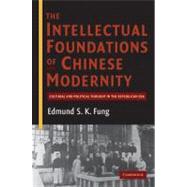
Note: Supplemental materials are not guaranteed with Rental or Used book purchases.
Purchase Benefits
What is included with this book?
| Acknowledgements | p. ix |
| Abbreviations | p. xiii |
| A Note on Romanization | p. xv |
| Introduction | p. 1 |
| Towards an Understanding of Chinese Modernity | p. 5 |
| Some Methodological Issues | p. 13 |
| A Community of Critical Intellectuals | p. 18 |
| The Main Arguments of the Book | p. 20 |
| The Structure of the Book | p. 24 |
| The Push of Westernized Radicalism | p. 27 |
| The Early East–West Debate | p. 31 |
| The Advocacy of Thorough Westernization | p. 37 |
| Total Westernization: The Advocacy of a Fervent Nationalist | p. 46 |
| The Decline of Westernized Radicalism | p. 56 |
| A Critique of Westernized Radicalism | p. 58 |
| The Pull of Cultural Conservatism | p. 61 |
| The Rise of Modern Chinese Conservatism | p. 63 |
| Easternization: The Quest for Cultural Equality | p. 72 |
| Central Themes of the Conservative Counter-Discourse | p. 76 |
| Tiaohelun: The Doctrine of Mediation and Harmony | p. 84 |
| New Confucianism | p. 90 |
| Reflections on Cultural Conservatism | p. 93 |
| The Politics of Modern Chinese Conservatism | p. 96 |
| Nationalism, Modernity and Politicocultural Nationalism | p. 98 |
| The Politicocultural Thought of Liang Shuming and Zhang Junmai | p. 103 |
| The Politics of China-Based Cultural Reconstruction | p. 113 |
| Wartime Politicocultural Nationalism | p. 117 |
| The Political Thought of the Warring States Group | p. 120 |
| Conclusion | p. 126 |
| Liberalism in China and Chinese Liberal Thought | p. 128 |
| The Rise of Chinese Liberalism | p. 130 |
| The Liberals as a Differentiated Category | p. 134 |
| How Was Liberalism Understood in Modern China? | p. 138 |
| The Features and Specific Concerns of Chinese Liberal Thought | p. 146 |
| Liberal Thought, Cultural Radicalism, Cultural Conservatism | p. 157 |
| The State, Government and the Rule of Law | p. 159 |
| What Did a Strong Chinese State Mean? | p. 161 |
| Omnipotent Government and Government with a Plan | p. 167 |
| Good Government and Government by ‘Good Men’ | p. 171 |
| The Rule of Law | p. 182 |
| Conclusion | p. 189 |
| The Rise of Reformist Socialist Thought | p. 191 |
| The Socialist Discourse, 1919 | p. 193 |
| The 1920 Controversy: Capitalism Versus Socialism | p. 199 |
| Zhang Junmai and the German Influence | p. 205 |
| The Influence of British Socialism | p. 211 |
| A Liberal Response to the Soviet Experiment of the 1920s | p. 213 |
| Protosocialism in Ancient Chinese Thought | p. 219 |
| Conclusion | p. 222 |
| From State Socialism to Social Democracy | p. 224 |
| State Socialist Thought to 1945 | p. 226 |
| Postwar Social Democratic Thought | p. 238 |
| A Comparative Perspective | p. 253 |
| Conclusion | p. 256 |
| Glossary | p. 269 |
| Selected Bibliography | p. 281 |
| Index | p. 307 |
| Table of Contents provided by Ingram. All Rights Reserved. |
The New copy of this book will include any supplemental materials advertised. Please check the title of the book to determine if it should include any access cards, study guides, lab manuals, CDs, etc.
The Used, Rental and eBook copies of this book are not guaranteed to include any supplemental materials. Typically, only the book itself is included. This is true even if the title states it includes any access cards, study guides, lab manuals, CDs, etc.